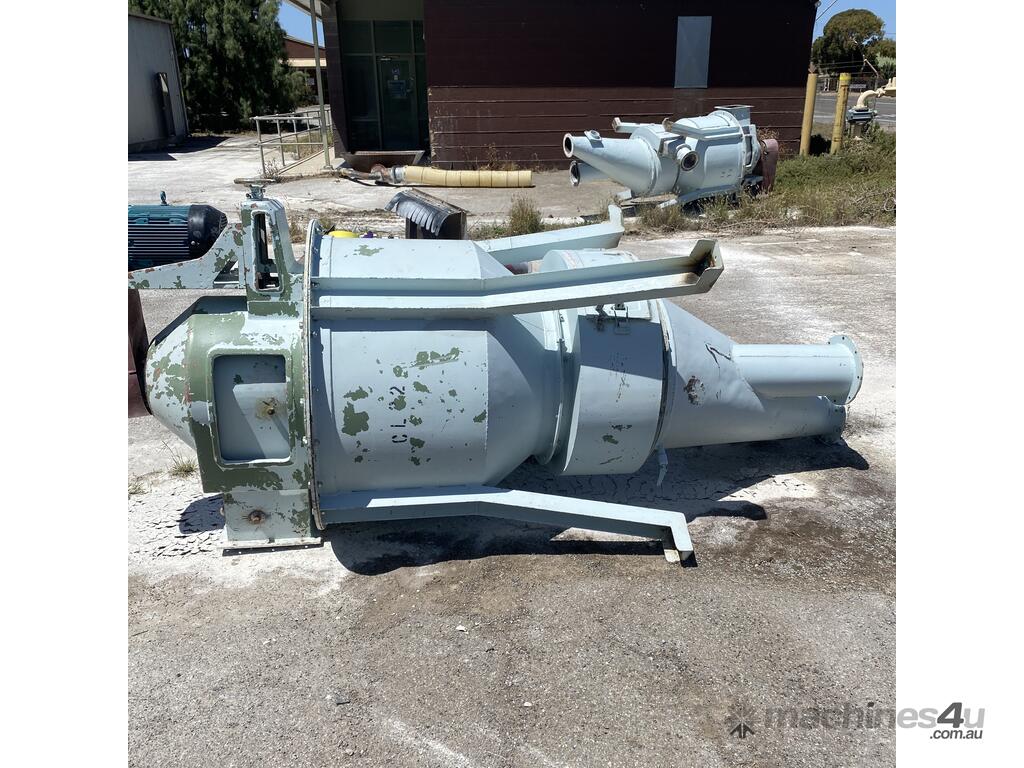HOSOKAWA IRON WORKS MS-4H Powder System Particle Micron Micro-Separator Air Classifier 3.7kW
We have 2 of these available, price is for 1.
They were built in 1963, but they are in very good condition (see photos of internals).
The classifying wheel still looks brand new.
They were part of a talcum powder factory.
1600 x 1300 x 3600mm
?? kg
The Micron Separator classifies particles by balancing the centrifugal force of the rotor and the centripetal force of the air. Material to be separated is pulled in by the fan through the inlet duct and up to the rotor, where the opposing two forces classify it. Fine particles, more susceptible to centripetal force, are carried on the air current through the rotor and then discharged through the upper outlet duct. Coarse particles, more susceptible to centrifugal force, flow down the inside wall of the machine and go out the coarse particle discharge. Since the rotor speed determines the centrifugal force, particle size can be easily adjusted by changing the rotor speed.
The Micron Separator Air Classifier is a mechanical centrifugal air classifier, using “flow through” technology, providing precise, efficient, and reliable separations of materials. The Micron Separator is unique in the field of fine powder classification as it can be retrofitted to many popular grinders, such as the Mikro Pulverizer® Hammer & Screen Mill.
Design & Options:
The rotor speed determines the centrifugal force; particle size can be easily adjusted by changing the rotor speed.
Can process up to 4,000 lbs/hour
Operates with efficiencies up to 90%
Classifies any material, organic or inorganic that can be spherical, flaky, and/or fibrous particles.
Classifying rotor uses the principles of fluid dynamics.
Closed circuit operation permits the grinding of heat sensitive materials or products with low softening points.
Great for classifying food particles such as: sugar; salt; flour, and grain; starch; dairy products; spices; tea; gelatin; vegetables; cocoa powder and chocolate crumb.
Application use for the chemical industry consists of: calcium sulfide; silicon carbide; acrylic resin; magnesium oxide; magnesium dioxide; and carbon black.
Typical mineral filler applications include: calcium carbonate; lime; mica; pearlite; gypsum; barium sulfate and alumina.
Contact and inspection of goods
Please contact Tim Marshman with any questions. This item may be inspected by appointment at 9 Vernon Smith Court, Ottoway, South Australia address.
